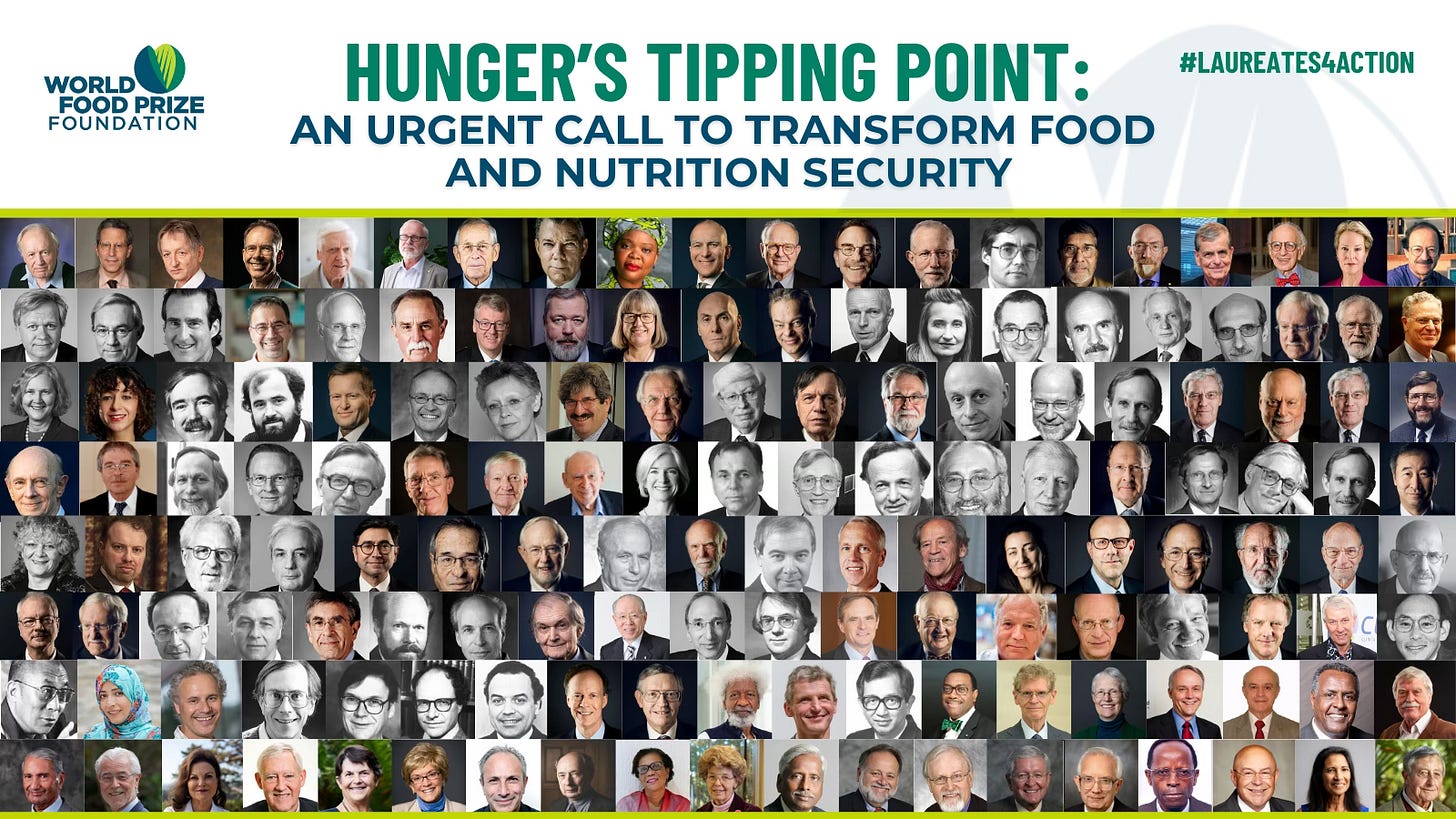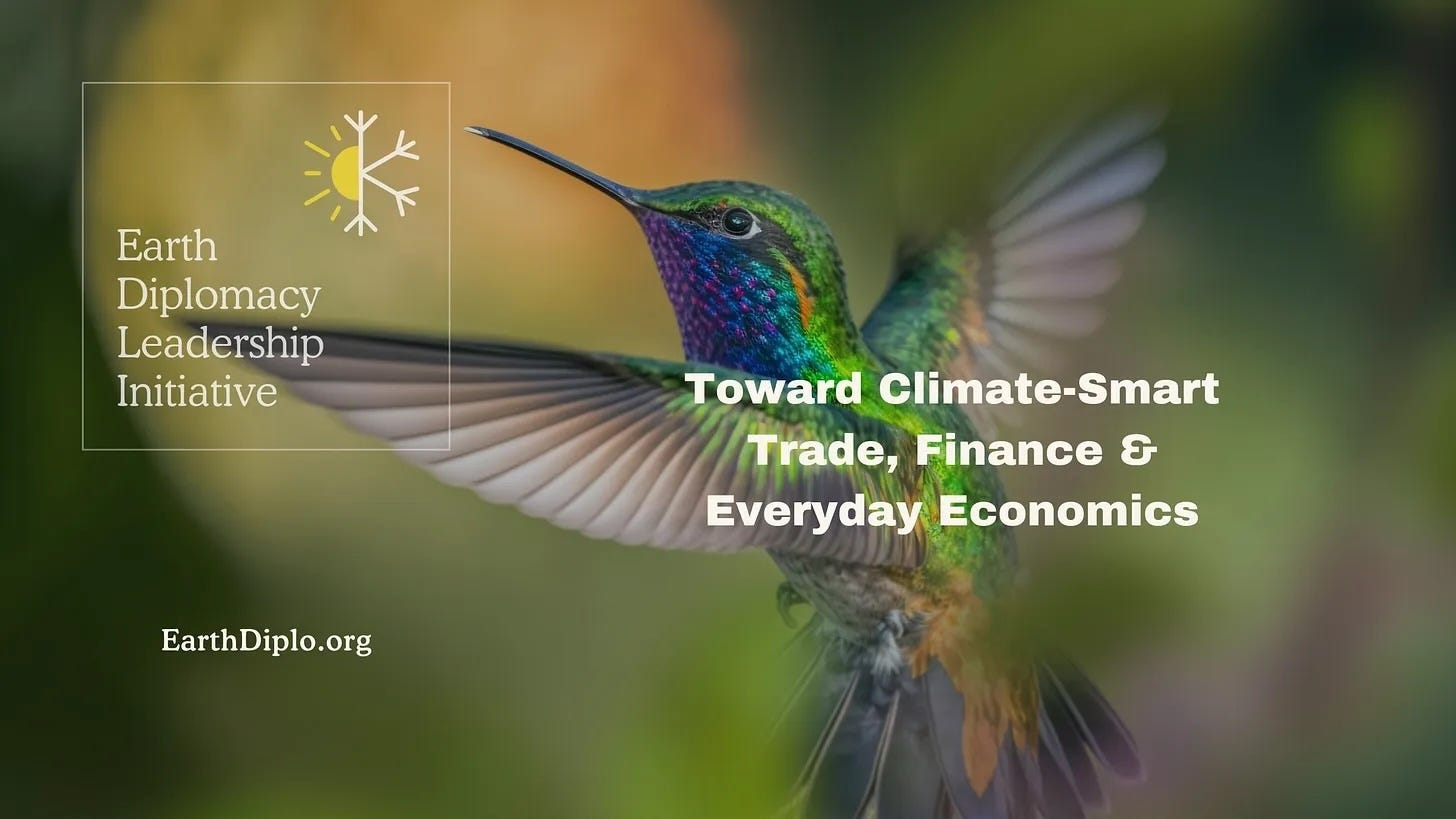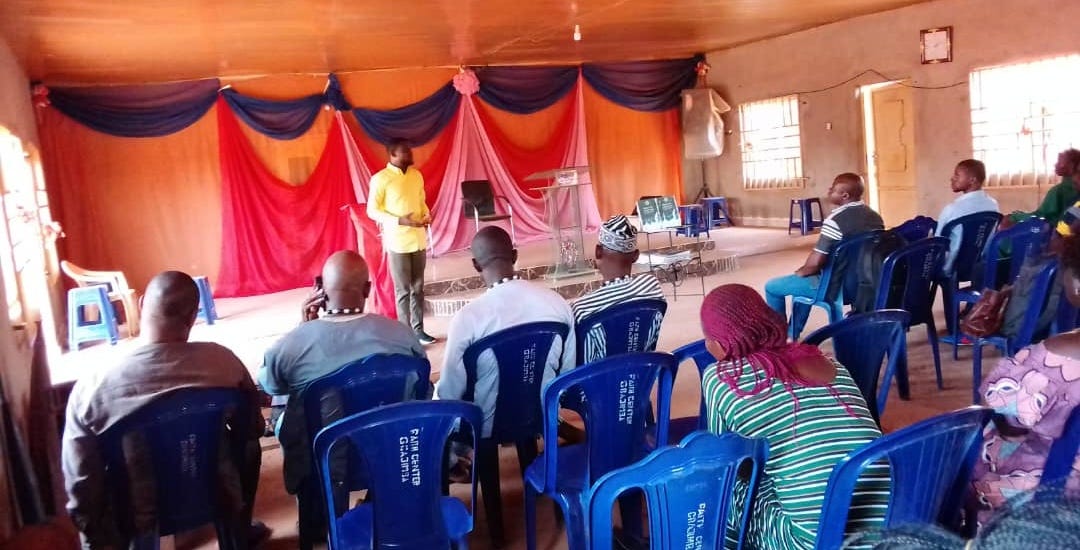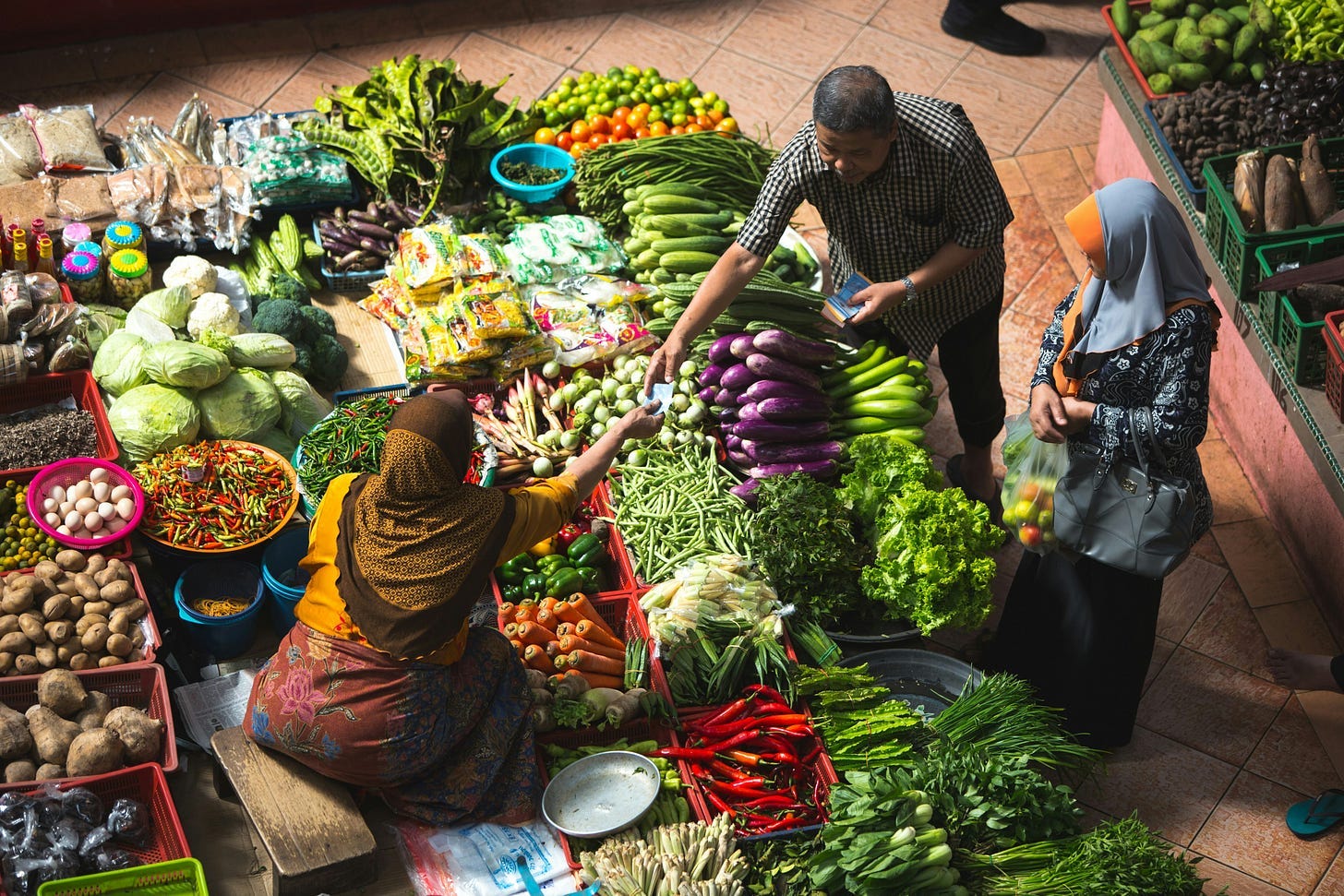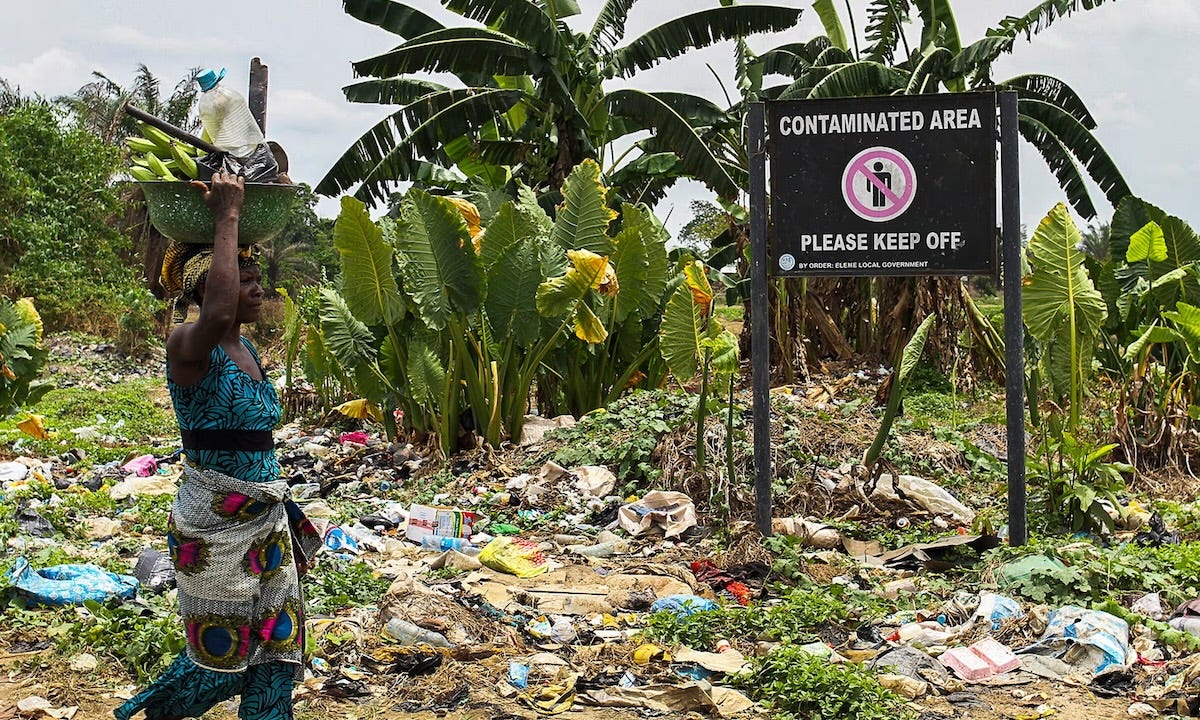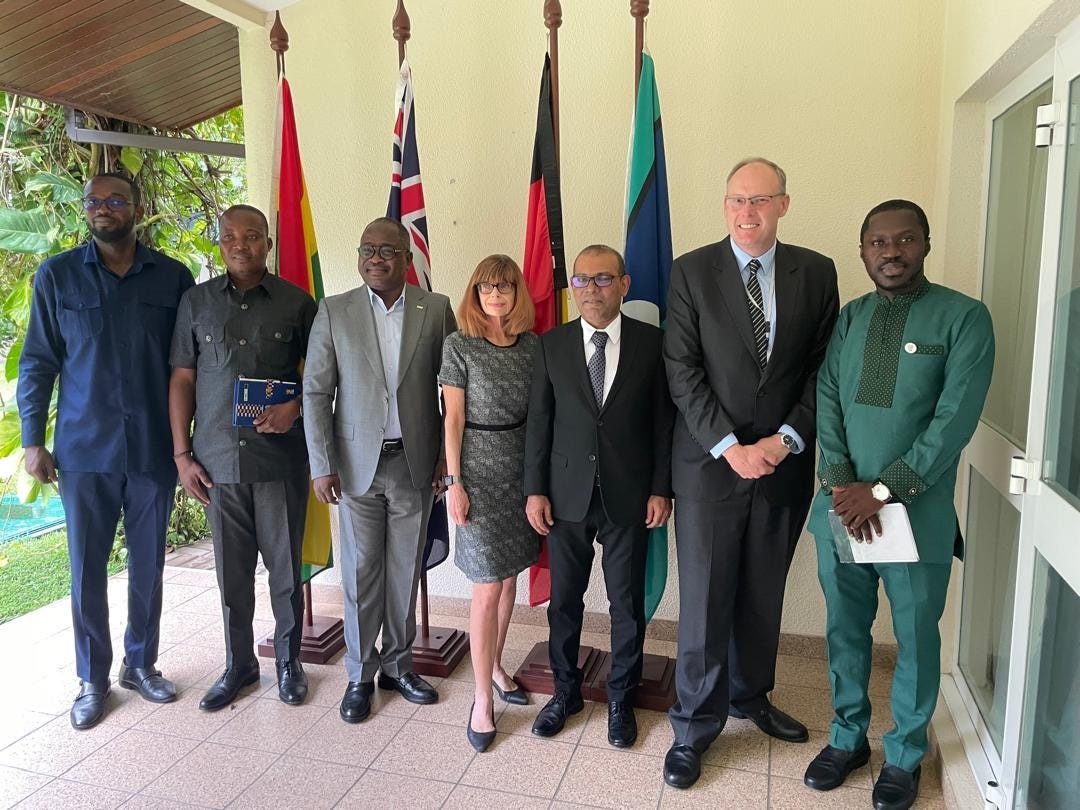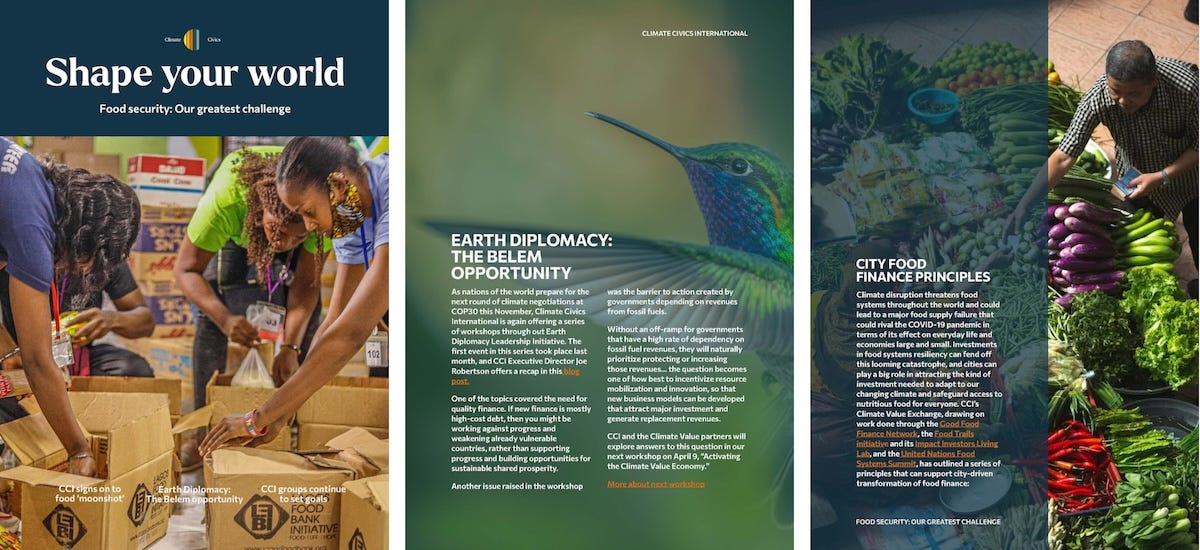Food Security: Our greatest challenge
NEWSLETTER, March 2025 — CCI signs on to food "moonshot"; Earth Diplomacy: The Belém opportunity; City food finance principles; CCI signs letter to hold Shell accountable
With the climate crisis threatening food security throughout the world, some good news is emerging in Africa on ways to adapt to a changing climate that can ensure people have access to enough nutritious food. The New York Times reports that a hybrid breed of chicken, one that can lay eggs and also be raised for meat, is being used by farmers in several African nations. The birds can also survive on less water and food than other chickens, making them resilient to heat waves, droughts and other effects of climate change. Another innovation is occurring with the Sustainable Rice Landscapes initiative, which reduces GHG emissions from rice production, restores degraded land and conserves biodiversity, while increasing food security for local populations and building global rice supply chain resilience. Floods, heat waves and wildfires capture the headlines when it comes to climate-related impacts, but food insecurity is the slow-motion disaster that will have the most destabilizing effect on our world. This is why Climate Civics International joined the Good Food Finance Network and is working with partners to develop new mechanisms to fund the development of food systems that are more resilient to the ravages of climate change.
CCI signs on to food ‘moonshot’
With ever-worsening climate disruption threatening access to food throughout the world, Climate Civics International has signed on to a letter from more than 150 Nobel and World Food Prize Laureates calling for financial and political backing to develop “moonshot” technologies to avert catastrophic hunger in the next 25 years. In a post on CCI's website, Executive Director Joe Robertson noted that "as global heating has intensified, spread, and begun compounding its effects, creating unprecedented costs and destabilizing disruptions, there is increasing concern that food supplies will become less stable and eventually fail. The ripple effects of a major food supply failure would be global and could rival the COVID-19 pandemic in terms of disruption of everyday life and economies large and small."
The letter CCI signed on to warns that the world is “not even close” to meeting future food needs, with an estimated 700 million people going hungry today and an additional 1.5 billion people to feed by 2050. The letter predicted humanity faced an “even more food insecure, unstable world” by mid-century unless the international community ramped up support for the latest research and innovation. The letter lists some of the most promising scientific breakthroughs and emerging fields of research that could be prioritized to boost food production, despite existing and future challenges. These include improving photosynthesis in staple crops such as wheat and rice to optimize growth; developing cereals that can source nitrogen biologically and grow without fertilizer; as well as boosting research into hardy, nutrition-rich indigenous crops that have been largely overlooked for improvements.
Earth Diplomacy: The Belem opportunity
As nations of the world prepare for the next round of climate negotiations at COP30 this November, Climate Civics International is again offering a series of workshops through out Earth Diplomacy Leadership Initiative. The first event in this series took place last month, and CCI Executive Director Joe Robertson offers a recap in this blog post.
One of the topics covered the need for quality finance. If new finance is mostly high-cost debt, then you might be working against progress and weakening already vulnerable countries, rather than supporting progress and building opportunities for sustainable shared prosperity.
Another issue raised in the workshop was the barrier to action created by governments depending on revenues from fossil fuels.
Without an off-ramp for governments that have a high rate of dependency on fossil fuel revenues, they will naturally prioritize protecting or increasing those revenues… the question becomes one of how best to incentivize resource mobilization and innovation, so that new business models can be developed that attract major investment and generate replacement revenues.
CCI and the Climate Value partners will explore answers to this question in our next workshop on April 9, “Activating the Climate Value Economy.”
CCI groups continue to set goals
Our CCI chapters continue to meet and set goals for 2025. In Kigali, Rwanda, volunteer Mahame Andrew reports that his group will engage with local organizations on community tree planting projects in public spaces, schools and long streets. They also plan to launch a waste reduction and recycling program that will reduce plastic waste. They will promote the use of solar energy for households and businesses and organize workshops on climate change and sustainable practices.
In Makurdi, Nigeria, Tine Agenor reports the group will focus on boosting membership and building capacity for more effective climate action. Among the ways they will achieve these goals are to offer training opportunities to volunteers, take actions to raise public awareness, hold advocacy meetings with ministries and agencies, and take steps to increase membership.
City food finance principles
Climate disruption threatens food systems throughout the world and could lead to a major food supply failure that could rival the COVID-19 pandemic in terms of its effect on everyday life and economies large and small. Investments in food systems resiliency can fend off this looming catastrophe, and cities can play a big role in attracting the kind of investment needed to adapt to our changing climate and safeguard access to nutritious food for everyone. CCI’s Climate Value Exchange, drawing on work done through the Good Food Finance Network, the Food Trails initiative and its Impact Investors Living Lab, and the United Nations Food Systems Summit, has outlined a series of principles that can support city-driven transformation of food finance:
Common Reality – Health-building, nutritious, sustainably produced food should be an affordable, accessible everyday option for all.
Delivering Impact – Cities deliberately play the role of impact investor, to shape healthy, sustainable food environments.
Urban-Rural Feedbacks – Cities work with surrounding rural areas to support convergence of consumption, production, and incentives.
Multilevel Cooperation – Cities engage with regional and national authorities to support enhanced implementation of national climate, food, health, and biodiversity plans.
Co-Investment – Cities engage proactively to shape and mobilize investment partnerships linked to a broader Co-Investment Platform for Food Systems Transformation.
Tracking and Labeling – Cities act as critical intermediaries to support needed data systems integration and multidimensional metrics.
CCI released the Principles through the Climate Value Exchange.
CCI signs letter to hold Shell accountable
Since our inception, Climate Civics International has held fast to the principle that polluters must pay for the damage they do. This applies not just to harm caused by greenhouse gas emissions, but also to the damage caused by the extraction of resources like oil, gas and coal. For decades, Shell Petroleum Development Company has made billions of dollars in profits from its operations in the Niger Delta of Nigeria. During that time, however, thousands of oil spills have contaminated the land, air and water in the region, harming the health, well-being and livelihoods of hundreds of thousands of residents.
Last month, Shell completed a deal to divest its holdings in Nigeria to Renaissance Africa Energy Holdings without ensuring that adequate resources would be provided to clean up its mess. CCI, therefore, has signed onto a letter to Shell from hundreds of Nigerian and international civil society organizations, demanding that Shell “confirm if the company will fully clean up the vast pollution legacy associated with Shell Petroleum Development Company of Nigeria (SPDC) assets on the Niger Delta and share publicly how this essential clean up process will occur.”
CCI to publish GFFN newsletter
In 2024, CCI joined the core group of coordinating partners that convene and manage the Good Food Finance Network. We have since announced a number of new food systems efforts linked to the Climate Value Exchange, including a new core program goal of supporting food systems transformation. CCI will now be supporting an expanded communications effort for the GFFN, by coordinating the new monthly Good Food Finance newsletter, which will feature news from GFFN activities, from the partners, and from initiatives that advance Good Food Finance priorities.
Updates
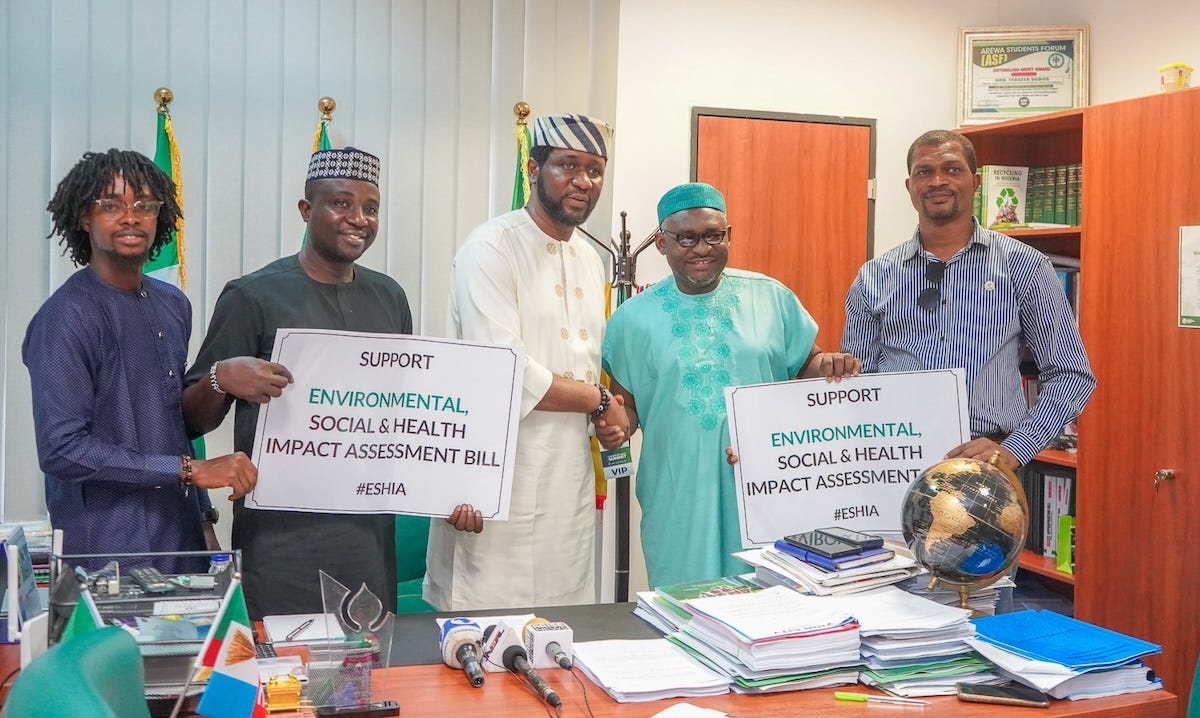
Abuja volunteers collaborate on Environmental Impact Assessment bill: In a remarkable demonstration of collaborative governance, CCI volunteers in Abuja, Nigeria, worked with GIFSEP and others to produce an Environmental Social Health Impact Assessment bill in the Nigeria House of Assembly Committee on Environment. This partnership was born out of a mutual recognition of the pressing need to address the complex challenges facing Nigeria's environment and public health, especially in the context of rapid urbanization, mining, industrial expansion, and climate change.
CCI Volunteer in Accra, Ghana, appointed to post on climate and sustainability: Cedric Dzelu, CCI volunteer in Accra, Ghana (second from left in photo above), has been appointed technical director at the Office of the Minister of Climate Change and Sustainability by the Honourable Seidu Issifu, Ghana’s first-ever minister dedicated to addressing climate change and sustainability. Cedric’s appointment is a reflection of his commitment to service and to the fight against climate change.
Upcoming events
Wednesday, April 9 — Activating the Climate Value Economy — Learn More
Monday, April 14 — Climate Value Exchange Monthly Planning Meeting — Learn More
Tuesday, April 15 — CCI Monthly Network Call — Register to Join
Thursday, April 24 — Climate Banking Innovation Dialogue — Learn More




